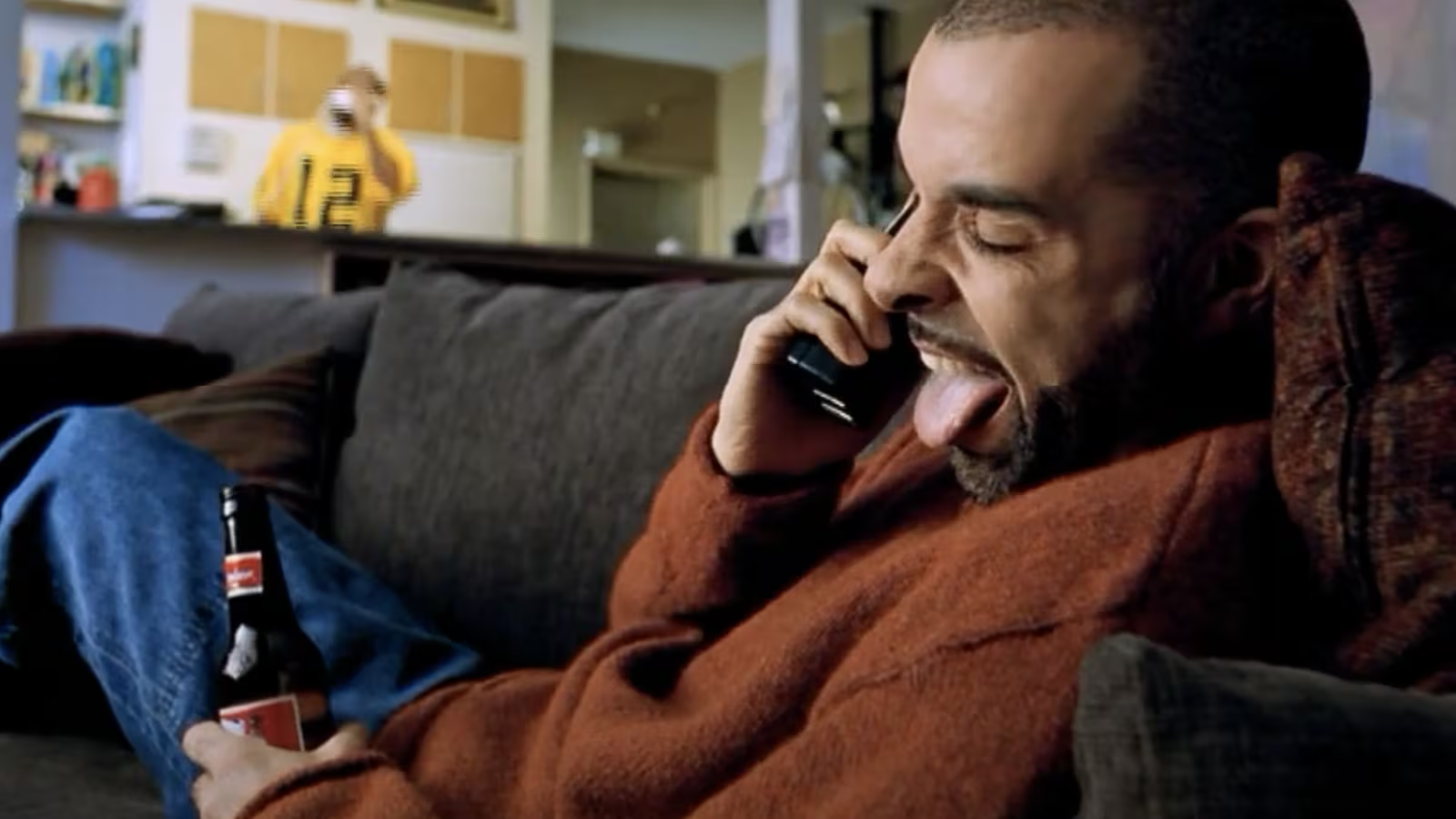AS PUBLISHED ON:
August 15, 2025
WHY BRANDS SHOULD FOCUS ON ENTERTAINING, NOT LECTURING.
ROB LEWIS
Founder/Head of Creative
Good Conduct
Humor and novelty, such as Budweiser's “Wassup” campaign, inspire consumers to remember the marketing and the product. (Budweiser)
Now that the era of brand virtue-signaling has run its course, it’s time to get back to what actually works: entertaining people.
Consumers no longer expect brands to save the world. They’re scrolling past lectures and stopping for laughs. Duolingo’s unhinged owl, Wendy’s Twitter roasts and Ryan Reynolds’ funny-first approach are all winning because people enjoy interacting with them. With attention harder than ever to earn, making people laugh or smile is essential for survival.
Surprise, novelty and a good laugh break through in ways corporate manifestos never will. The best part? It’s a strategy any brand can use if they understand how human beings work and commit to doing it authentically.
There’s science to it
Entertainment is scientifically superior to traditional messaging approaches. A 2024 study by Oracle found that 90% of consumers are more likely to recall a brand associated with humor, and 72% would choose a humorous brand over the competition. Eighty percent say they’re more likely to buy again if the brand is funny.
When you entertain someone, they actually like you. That goes for people and brands alike. You want someone to not only remember you but to remember you fondly. For brands, that leads to higher brand sentiment among consumers and more consideration to buy. Old Spice’s “I’m on a horse” campaign didn’t just boost awareness; it made buying deodorant fun. In a world of product parity, why not buy from the brand that made you laugh?
Humor and novelty also lower skepticism. It inspires people to share it and quote it. “Wassup,” “Can you hear me now?” and “Totes Magotes”—these become part of the cultural vocabulary.
Why entertainment is a must right now
Remember when Burger King showed us a moldy Whopper? Disgusting, but unforgettable.
In a climate where people actively avoid advertising, entertainment is often the only invitation they’ll accept. Consumers scroll through 500 feet of content daily. Gen Z, in particular, responds to humor over lecturing. They want brands that feel human, not corporate. To break through, marketers should use playful content to appeal to audiences who have endless options at their fingertips.
DANCE, MONKEY!
Ready to see us in action?
Getting started
Start by understanding your brand's comfort zone. Some can pull off roasting customers (Wendy's), others excel at self-deprecation (Charmin), and some work best with clever wordplay or visual gags.
Playful or unexpected approaches can work even for serious topics when done thoughtfully. Consider The Australian Metro Trains’ “Dumb ways to die” campaign or Donate Life's “World's biggest asshole”—both got more reach than they could have ever imagined by approaching serious topics with surprising, delightful storytelling.
Study what your audience already enjoys. What memes do they share? What comedy shows do they watch? This approach works best when it speaks the audience's existing language.
A new framework for making entertainment work
The rules are straightforward:
Don’t fake it
Much like the best jokes told by comedians, the most engaging content is based in reality. It's why people always say, "It's so true." But it also needs an element of surprise; pattern disruption and violating expectations lead to better attention and recall. Don't force funny scenarios— find a unique perspective on something that's already true about your audience.
It doesn’t always need to be funny
Audit your brand's natural personality first. Can you be genuinely funny? Great. If not, know that ‘funny’ isn’t the only way to entertain. Try being charming, thought-provoking, snarky, or even scary.
Own your weird
Identify what makes your brand genuinely different, not what you want to be different. Double down on that one authentic quirk rather than trying to be generically appealing. Document it as a content filter: “Does this feel like us?”
Move fast
Culture moves fast, but these days, so can production. A quick, humorous commentary on something that’s happening in culture can entertain audiences and amplify your reach.
The bottom line is that the best way to make consumers consider your brand is to get them to remember you and like you.
So, if your brand isn’t going to save the world, the least it can do is make it a little more fun. In the end, the only brands anyone remembers are the ones they enjoy.
Original Article Here




